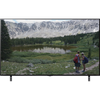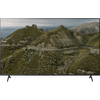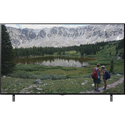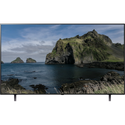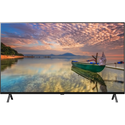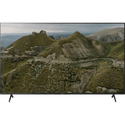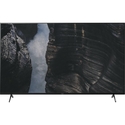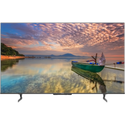A comparison of specs, key information, reviews, and best pricing from top retailers
Last updated -- hours ago | Report incorrect information
What we think

The PerfectRec TV team Learn more
Updated January 10, 2024·
If you're looking for a more budget-friendly option, the LG NANO90 is often significantly less expensive. If gaming is a priority, both TVs have similar scores, but for watching sports and in well-lit environments, the Sony X85J slightly edges out. On the other hand, if darker room performance is vital, you might not see a big difference between the two. Also, note that neither TV excels in sound quality and might benefit from external speakers. Give Feedback
this description is based on the product variant with some specs and product variant with some specs. At the time of writing, the variant with some specs cost some dollars and the variant with some specs cost some dollars.
Advantages of the LG NANO90 (LCD)
- Very good for gaming
- Good for use as monitor
- Very good reflections
Advantages of the Sony X85J (LCD)
- Good for bright room
- Good for sports
- Very good for news, talk, & other TV
- Very good for cartoons & animation
- Best in class for upscaling
- Best in class motion processing
Key differences
Picture Quality
6.1
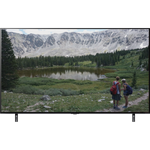
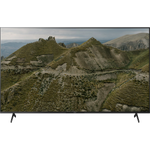
7.3
5.28/10
CONTRAST
7.88/10
6.6/10
COLOR VOLUME SCORE
7.3/10
LED FALD
PANEL TYPE
LED
IPS
PANEL SUB-TYPE
VA
The Sony X85J (LCD) has good picture quality, while the LG NANO90 (LCD) has only fair picture quality.
Movies & TV
5.6


6.5
5.28/10
CONTRAST
7.88/10
5.3/10
BLACK UNIFORMITY
6.9/10
7.5/10
UPSCALING
10.0/10
Yes
HDR10 SUPPORT
Yes
No
HDR10+ SUPPORT
No
Yes
DOLBY VISION SUPPORT
Yes
The Sony X85J (LCD) is only fair for movies & TV, while the LG NANO90 (LCD) is poor.
The LG NANO90 has a lower contrast and less effective local dimming that can make dark scenes in movies less impressive, and its black uniformity isn't as good as some viewers might prefer for cinematic content. Meanwhile, the Sony X85J offers a much better contrast making it more suitable for movies where dark scenes are commonly featured, but its poor viewing angles may reduce the picture quality when not sitting directly in front of the screen.
Cartoons & Animation
5.6


8.6
6.5/10
COLOR GAMUT SCORE
7.3/10
6.6/10
COLOR VOLUME SCORE
7.3/10
7.8/10
SDR BRIGHTNESS SCORE
8.5/10
4.3/10
COLORS OUT OF THE BOX SCORE
9.1/10
5.9/10
GRAY UNIFORMITY
8.2/10
The Sony X85J (LCD) is very good for cartoons & animation, while the LG NANO90 (LCD) is poor.
The LG NANO90 displays cartoons and animations poorly due to its less accurate colors out of the box and a fair color gamut, which means it cannot reproduce a wide range of colors vibrantly. In contrast, the Sony X85J offers an excellent experience with accurate colors out of the box and good color volume, ensuring that animations are shown with rich, well-saturated hues.
News, Talk, & Other TV
6.4


8.2
7.8/10
SDR BRIGHTNESS SCORE
8.5/10
7.5/10
UPSCALING
10.0/10
The Sony X85J (LCD) is very good for news, talk, & other TV, while the LG NANO90 (LCD) is only fair.
The Sony X85J is considered very good for watching news, talk shows, and other TV programs due to its higher SDR brightness and excellent colors out of the box, which provide a clearer and more vibrant viewing experience. However, the LG NANO90 is only considered fair in these aspects with good SDR brightness and poor colors out of the box, meaning it offers a less optimal viewing experience for daily content compared to the Sony model.
Cost
$1,100


$1,000
$400
$600
$800
$1,000
$1,200
$1,400
$1,600
$1,800
The LG NANO90 (LCD) has a price of $1,100 and the Sony X85J (LCD) costs $1,000.
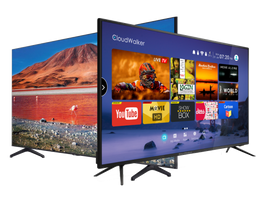
Let Us Help Find Your Perfect TV
Find your new TV
Key similarities
Sports
6.8


7.2
7.5/10
MOTION PROCESSING
10.0/10
120Hz
REFRESH RATE
120Hz
8.7/10
INPUT LAG SCORE
7.6/10
7.5/10
UPSCALING
10.0/10
7.8/10
SDR BRIGHTNESS SCORE
8.5/10
Yes
HLG SUPPORT
Yes
Although they have very similar scores, PerfectRec considers Sony X85J (LCD) to be good for sports, while the LG NANO90 (LCD) is only fair.
The Sony X85J LCD TV provides a better sports watching experience thanks to its excellent motion processing, which means it can handle fast-moving action more smoothly, while LG NANO90's motion processing is considered good but not on par with the Sony. Additionally, whereas the LG NANO90 has a very good handling of reflections, making it suitable for well-lit rooms, the Sony X85J has a poorer performance in this aspect, which can be a downside if you often watch TV in a bright environment.
Gaming
8.0


7.6
7.6/10
RESPONSE TIME SCORE
7.8/10
8.7/10
INPUT LAG SCORE
7.6/10
7.5/10
MOTION PROCESSING
10.0/10
50.0/100
GAMING LOCAL DIMMING
0.0/100
7.6/10
GAME HDR BRIGHTNESS SCORE
7.5/10
Although they have very similar scores, PerfectRec considers LG NANO90 (LCD) to be very good for gaming, while the Sony X85J (LCD) is good.
The LG NANO90 is rated higher for gaming, primarily because it has very good input lag, crucial for quick reaction times in games, and a good response time, which reduces motion blur. The Sony X85J, while also suitable for gaming, doesn't match the LG NANO90's performance in these critical areas.
Bright Room
6.9


7.3
6.3/10
VIEWING ANGLE
5.3/10
7.8/10
SDR BRIGHTNESS SCORE
8.5/10
7.2/10
HDR BRIGHTNESS SCORE
7.1/10
8.0/10
REFLECTIONS SCORE
5.9/10
Although they have very similar scores, PerfectRec considers Sony X85J (LCD) to be good for bright room, while the LG NANO90 (LCD) is only fair.
The Sony X85J outperforms the LG NANO90 in a bright room primarily due to its superior reflections handling, which reduces the impact of ambient light on the screen. Additionally, while both TVs offer good SDR and HDR brightness, the Sony X85J's higher contrast ratio contributes to better color volume and gamut, enhancing the overall viewing experience in well-lit environments.
Give feedback
We’re constantly working to improve.
How the LG NANO90 (LCD) and the Sony X85J (LCD) compare to other TVs
Spec Comparison
| LG NANO90 (LCD) | Sony X85J (LCD) |
GENERAL | |||
|---|---|---|---|
| Price | |||
$1,100 | $1,000 | ||
Brand | |||
Brand | LG | Sony | |
Release Date | |||
Release Date | March 1, 2021 | April 3, 2021 | |
Full name | |||
Full name | 55NANO90 | KD-55X85J | |
Screen Size | |||
Screen Size | 55" | 55" | |
Screen Resolution | |||
Screen Resolution | 4K | 4K | |
TV FEATURES | |||
|---|---|---|---|
Operating System | |||
Operating System | webOS | Android TV | |
Sound Quality Score | |||
Sound Quality Score | 6.4/10 | 7.5/10 | |
NextGen Ready | |||
NextGen Ready | No | Yes | |
HDMI Ports | |||
HDMI Ports | 4 | 4 | |
Coax Ports | |||
Coax Ports | 1 | 1 | |
DISPLAY QUALITY SCORES | |||
|---|---|---|---|
Picture Quality Score | |||
Picture Quality Score | 6.1/10 | 7.3/10 | |
Bright Room Score | |||
Bright Room Score | 7/10 | 7.4/10 | |
Gaming Score | |||
Gaming Score | 8/10 | 7.6/10 | |
Movies & TV Score | |||
Movies & TV Score | 5.6/10 | 6.6/10 | |
Sports Score | |||
Sports Score | 6.8/10 | 7.3/10 | |
PHYSICAL | |||
|---|---|---|---|
Dimensions w/o Stand (H x W x D) | |||
Dimensions w/o Stand (H x W x D) | 28.2" x 48.5" x 1.8" | 28" x 48.5" x 2.8" | |
Dimensions with Stand (H x W) | |||
Dimensions with Stand (H x W) | 30.7" x 48.5" | 30.9" x 48.5" | |
Weight without Stand | |||
Weight without Stand | 39.7 lbs | 37.1 lbs | |
VESA Mount | |||
VESA Mount | 300 x 300 | 300 x 300 | |
DISPLAY | |||
|---|---|---|---|
Color Depth | |||
Color Depth | 10 bit | 10 bit | |
Black Frame Insertion | |||
Black Frame Insertion | Yes | Yes | |
Auto Low Latency Mode | |||
Auto Low Latency Mode | Yes | Yes | |
Contrast | |||
Contrast | 5.3/10 | 7.9/10 | |
Local Dimming | |||
Local Dimming | 5.2/10 | 2.5/10 | |
SOUND | |||
|---|---|---|---|
Speaker Setup | |||
Speaker Setup | 2.2 | 2.0 | |
Speaker Power | |||
Speaker Power | 40 W | 20 W | |
Dolby Atmos | |||
Dolby Atmos | Yes | Yes | |
DTS:X | |||
DTS:X | No | Up to DTS Digital Surround, Bypass only | |
Shopping
LG NANO90 (LCD)
See more
Dig into reviews and images
Techradar
John Archer | July 2021
"Here we have HDR pictures that look bright, but also manage to typically hit decently deep black levels.WebOS continues, though, to be one of the easiest to use. Connections are strong for a mid-range TV. Native 4K pictures look crisp and detailed."
Get a great deal on the LG NANO90 (LCD) or the Sony X85J (LCD)
About LG
LG, a prominent TV brand from Korea, has played a significant role in popularizing OLED TVs. OLED technology is hailed as the future of TV technology. Their TVs employ WebOS, a proprietary smart TV software that not only offers seamless functionality but also includes gaming-specific features, earning praise from players worldwide. Often regarded as the gateway to unparalleled viewing experiences, LG's mid-range OLEDs come highly recommended, making them a worthwhile investment for those willing to stretch their budget for superior quality.
About Sony
Sony stands as a highly experienced and widely trusted TV manufacturer, earning a reputation that surpasses all others. A Japanese company, Sony has been making TVs for far longs than it has been making Playstation game consoles. Sony's high-end TVs are often regarded as the ultimate choice for videophiles, representing the epitome of quality, albeit at a premium price point. Renowned for their advanced and precise motion handling, as well as their cutting-edge local dimming algorithms, Sony consistently delivers unparalleled performance in these areas. They include Google TV software with all their TV sets, which grants access to the largest selection of apps available and they also include Bravia Core which is a movie streaming platform specifically for Sony TVs that offers higher picture quality by using more bandwidth.
Give feedback
We're constantly perfecting our model
TV guides you might be interested in
More comparisons for you
FAQs
FAQs about TVs
Why trust us
This information was produced and vetted by the PerfectRec TVs team. We are a product research and recommendation organization that meticulously reviews and evaluates the latest TV information and makes it digestible for you.
By the numbers
385
TVs evaluated
33,110
TVs stats compiled
21
Proprietary TVs ratings developed
178,830
Recommendations made
26,825
Consumer hours saved
About the TV team
Joe Golden, Ph.D
CEO and TVs Editor
Joe is an entrepreneur and lifelong electronics enthusiast with a Ph.D in Economics from the University of Michigan.
Jason Lew
Staff Expert & Software Engineer
Jason is a staff expert and software engineer that has been making laptop recommendations for 7 years and moderates one of the largest laptop subreddits.
Chandradeep Chowdhury
Staff Expert & Software Engineer
Chandradeep is a staff expert and software engineer and expert in televisions and monitors. He’s been making monitor recommendations for ten years.
Jaime Roldán
TVs Expert
Jaime is a Colombia-based TV expert. He is an electronics engineer with 8 years of experience in the telecom sector and has been making TV recommendations for 12 years.
